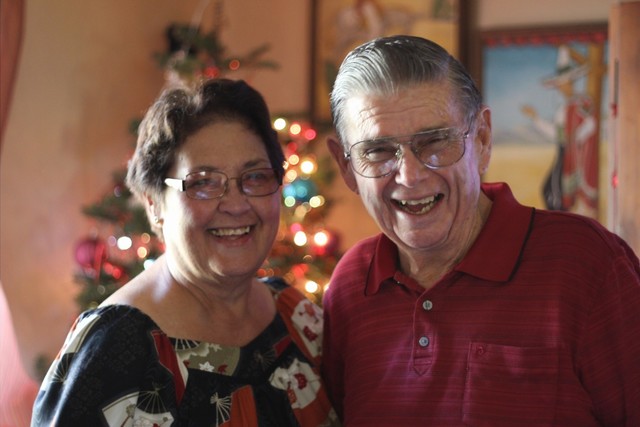Anthropologist Margaret Mead said, “Never doubt that a small group of thoughtful, committed citizens can change the world. Indeed, it’s the only thing that ever has.” ADVERTISING Anthropologist Margaret Mead said, “Never doubt that a small group of thoughtful, committed
Anthropologist Margaret Mead said, “Never doubt that a small group of thoughtful, committed citizens can change the world. Indeed, it’s the only thing that ever has.”
When the late Dorothy “Aunty Dottie” Thompson became executive director of the Merrie Monarch Festival in 1968, the 5-year-old event had waned in popularity and was on the verge of collapse. Thompson recruited a small group of thoughtful, committed citizens to change the festival’s fortunes. One, of course, was kumu hula George Na‘ope, one of the festival’s co-founders. Na‘ope helped execute Thompson’s vision of making a world-class hula competition the centerpiece of the festival.
Another of Thompson’s key recruits was Lei Branco, who for four decades until her retirement worked for the Hawaii Visitors and Convention Bureau. A force of nature, “Miss Lei,” as she’s affectionately known, became a board member — she’s still on the board — and festival volunteer whose marketing expertise, contacts, people skills and willingness to work hard helped make the Merrie Monarch week the pinnacle of Hilo’s year.
“She was there with my mother from the beginning and she’s done so much for us over the years,” said Luana Kawelu, Merrie Monarch president and Thompson’s daughter.
Branco, who has done everything from organizing and overseeing concessions at the festival to organizing the Merrie Monarch Festival Parade, is noticeably missing this year because she’s in California undergoing treatment for cancer.
Speaking by phone, Branco said the Merrie Monarch came into its own when Thompson took over it from the Hawaii Island Chamber of Commerce and made it a self-sustaining entity.
“Thank God Aunty Dottie wanted it,” she said. “(HVCB) gave her some money so she could start it up again. She was willing to go in and make money so it would help pay for itself. Because you can’t put on a big show like that without having backup, someone who is willing to help you.”
Branco, of course, did more than just help ensure the festival got startup funds.
“I learned to sell tickets and everything that everybody else had to do. And I worked in the office; I volunteered for that,” she said. “(Thompson) said, ‘We know you can do this because you know so many people.’ And it’s easier to talk to people you know than people you don’t know. That’s how I started working for her, and from that point on, it was full on, which I love.”
Branco, who remains active in the Big Island chapter of the International Federation of Women in Travel, secured the organization’s involvement, as well.
“We worked the food booth,” she said. “We worked in the front and took orders, not the back, because we were not the cooks. That took a lot of my time organizing that to work well for all concerned — the cooks, the ones who make the plates, and of course, our club who took the orders. We still do that, by the way.”
Branco and the women’s travel group also helped in creating early demand for the Merrie Monarch in the visitor industry.
“We brought women in the organization from around the world to come see the Merrie Monarch,” she said. “They were from Japan, from Europe, from all over. We even had some come from Africa. They couldn’t wait to come here.”
For a number of years, Branco also chaired the Merrie Monarch Festival Parade, which is always on Saturday and is Hilo’s biggest parade.
“Aunty Dottie said, ‘Why don’t you handle the parade because then I don’t have to worry about it,’” Branco recalled. “I’d never put on a parade in my life. You might as well tell me, ‘Why don’t you make dinner for all the people who’s coming in.’
“I learned a lot and I met a lot of people.”
Even before she became parade chairwoman, Branco was involved, as she and her paniolo (cowboy) husband, Charlie, worked to involve local equestrian folks as pa‘u riders.
“They were always calling me to see if I could get horses for the parade and thanks to my family, Charlie’s family in Waimea, we got the horses. His daughter really is the one to take care of the horses,” she said. “But, you know, horses have to be trained for parades. Because most of the horses there are for ranch work and you really can’t use them for the parade. They don’t like to stay still. They like to run and handle the cattle. Going down the hot street in a parade, that’s not for them.”
Branco, who credits Hilo surgeon Dr. Joshua Pierce for diagnosing her illness, is optimistic she will recover and hopes to take part in future festivals.
“I don’t care how many hours we worked, I enjoyed every minute of it,” she said. “There are people who come to the festival every year, and it’s so nice meeting these people again and again. They become your friends and they say, ‘Lei, we’re so happy to see you’re still here.’ And we’re so happy to see them come back.”
Email John Burnett at jburnett@hawaiitribune-herald.com.



